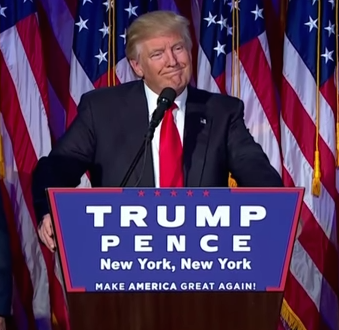Graduate Students Debunk Study by Professors that Claimed Link between Trump Rallies and Rise in Hate Crimes

This past March, a joint study by two University of North Texas professors and one assistant professor from Texas A&M University-Commerce claimed that they found evidence of Trump political rallies leading to a spike in hate crimes. Specifically, the study said that when a county hosted a Trump rally between 2015 to 2016, the county saw an astronomical 226% increase in hate crimes after the rally.
Despite the possibility of the 226% statistic being an outlier—as is common in studies, research, and statistics—the professors allegedly sent their results to the media before the research was vetted in the academic peer-review process. Oftentimes in statistics, a large outlier statistic such as this is noted as an outlier and researchers typically double-check and vet the outlier to ensure there are no mistakes in their research.
The study, entitled, “The Trump Effect: How 2016 Campaign Rallies Explain Spikes in Hate,” was co-authored by assistant professor Ayal Feinberg at Texas A&M University-Commerce, and University of North Texas professors Regina Branton and Valerie Martinez-Ebers. The study used hate crime reports from the Anti-Defamation League in the counties which hosted 300 Trump rallies between 2015 and 2016.
Two graduate students, Matthew Lilley and Brian Wheaton, published their rebuttal to the anti-Trump study in the libertarian-leaning Reason Magazine. They analyzed the study’s results referring to Trump rallies and hate crimes and compared those data points to counties which hosted rallies for then-candidate Hillary Clinton during the same time frame.
What did these graduate students discover? The study’s findings proved the opposite: Hillary Clinton’s rallies led to “an even greater increase in hate incidents than Trump rallies.”
The students noted that the original research did not take into account a simple principle: If a county has a high population, there is most likely a greater number of hate crimes reported when compared to a lesser-populated county (and therefore, a county that has a fewer number of hate crimes reported).
In their zeal to prove anti-Trumpism correct, it appears that the three professors in Texas did not account for simple statistical principles in publishing their flawed initial findings that claimed Trump rallies led to a spike in hate crimes reported.




